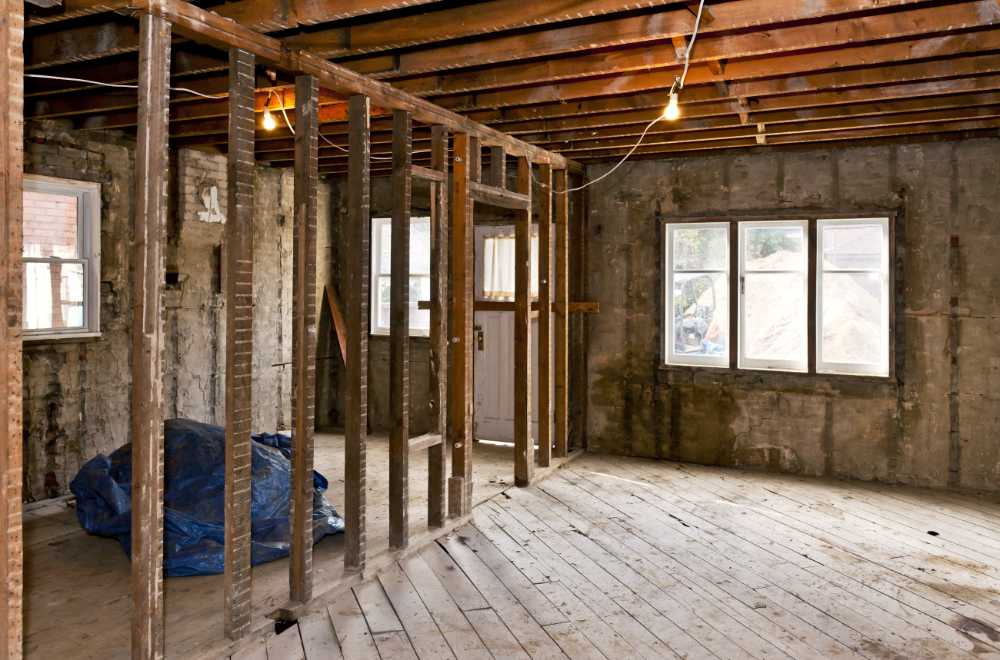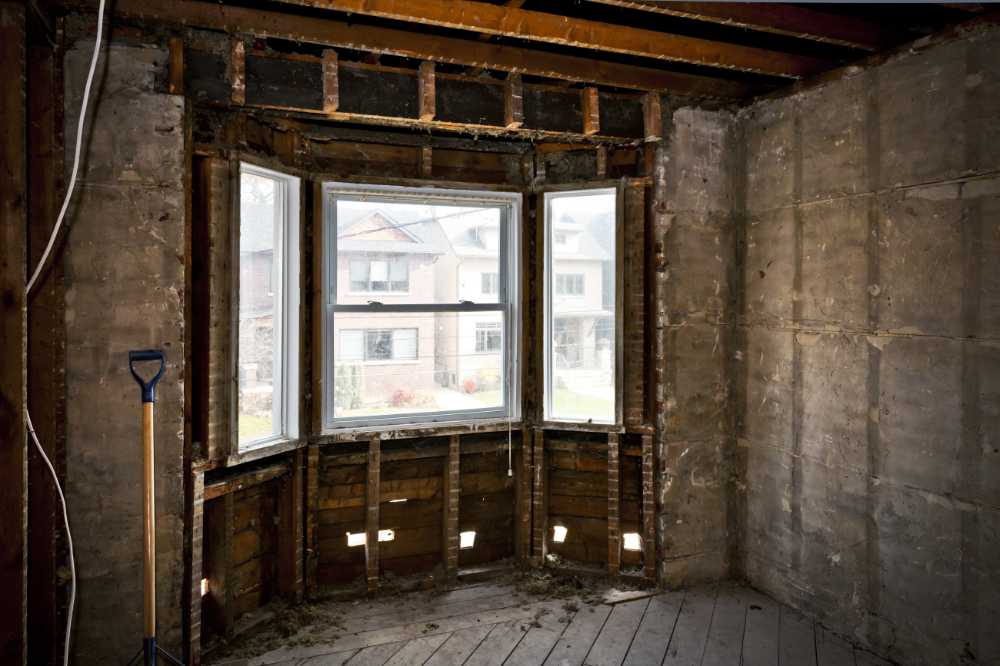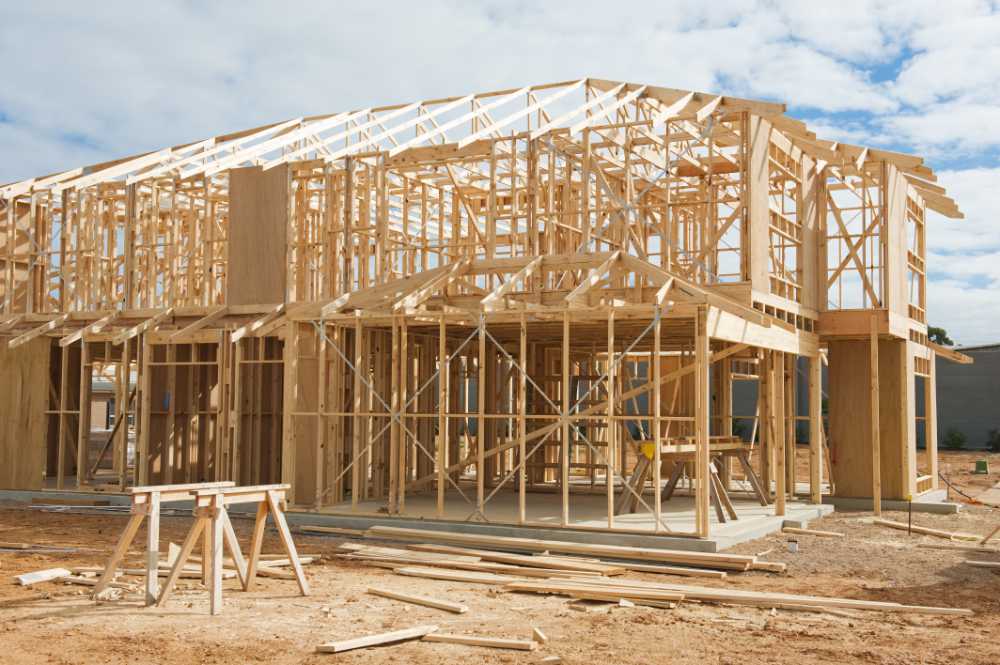
As a general contractor, I’ve been involved with countless gut renovations over my 15-plus years of experience. A recent survey of homeowners showed that 55% are planning to undertake some kind of remodeling over the next year.
Gut renovations are one of the most popular projects, particularly in older homes, but many people don’t know what’s involved or how much they cost.
In this article, I’m going to explain everything you need to know about gut renovating and provide answers to common questions like ‘how long does it take’ and ‘what is included in the project’, as well as things you should consider.
It’s basically starting from scratch with the interior spaces of a house – like ripping down walls, replacing plumbing fixtures and electrical wiring, installing new cabinetry and appliances, etc. It requires a lot of work and can be quite costly.
Typically, costs vary depending on the size of the project and location; however, expect to pay anywhere between $20K to $50K or more for larger projects.
Asking around at local hardware stores or even contacting contractors who specialize in this type of work may also provide additional insight into how much money to budget for the job. If you’re in Northern Virginia, feel free to give us a call and request a free consultation!
Additionally, make sure that permits are obtained before undertaking any major renovation, as these will need to be included in the overall cost as well.

Gut home renovations can be tricky – it’s like putting together a massive jigsaw puzzle. You have to take apart your existing house piece by piece and then figure out how all the pieces fit back together in new ways.
As a general contractor, I’ve seen some truly amazing transformations come from gutting an entire home.
My favorite was when I worked with a family who had just moved into an old house that needed major repairs. We started off by taking everything down to the studs – removing walls, floors, ceilings…you name it!
We also replaced plumbing systems and wiring where necessary, which drastically improved energy efficiency as well as safety.
Once we’d made sure everything was up to code, we got to work on rebuilding the interior of the house from scratch.
The result was incredible: we completely remodeled their kitchen with modern appliances and cabinetry; remodeled bathrooms with brand-new fixtures; installed hardwood floors throughout; added crown molding for character; and even created custom built-in storage solutions for them!
Gut renovations aren’t always cheap – they require careful planning and budgeting before you begin any demolition or rebuilds. But if done right, they can give your home an entirely new look that can last for decades.
Talk to us if you want to learn more.
Generally speaking, a full-scale gut renovation could take anywhere from three months up to a year or more, depending on how extensive the project is and how quickly decisions are made.
Now, if you’re only gutting a room, a small kitchen, or a bathroom, it shouldn’t take more than a few months.
No two projects are ever alike when it comes to gutting a house. As a general contractor, I like to ask my clients about their budget, timeline, and expectations so that I can provide them with an accurate estimate of the length of time needed to complete the job.
This helps me better plan out each step along the way as well as anticipate any potential delays in order to minimize disruption during construction.
In addition to considering all of these factors, there are also other things we have to keep in mind, such as local building codes and permits, which may require extra paperwork and inspections before beginning work – something else that will affect our timeline.
All this being said, I strive to make sure that every project runs smoothly so that my clients get exactly what they want within their desired timeframe.

Gutting a house or rebuilding it may seem like similar tasks, but the cost and timeline for each differ drastically.
According to Home Advisor, home renovations and remodels cost around $48,000 on average, depending on the size of the home and project. Whereas gutting a home down to its studs can cost $6,000 on average (just tearing things down, not including rebuilding it back!).
It takes most homeowners about four to six weeks to complete this type of project. So let’s take a look at which option is more economical – gutting or rebuilding?
This involves demolishing all interior walls, ceilings, and other major features such as cabinetry, flooring, and plumbing fixtures. It also requires new drywall, insulation, electrical wiring, and any other materials needed to make the space livable again
Gutting usually costs less upfront since there isn’t much in terms of structural work that needs to be done. However, if your home has asbestos or lead paint, then additional safety precautions need to be taken, which can add time and money to the project.
Depending on how large you want your remodel to be, rebuilding could end up being pricier than gutting an existing structure due to labor costs associated with constructing something brand new from scratch.
In addition, building permits must also be obtained before beginning construction which can cause delays in timelines too.
Ultimately when deciding between these two options, it comes down to budget constraints (and quite possibly location) as well as what kind of renovation you’re looking for.
Do your research ahead of time so that you know exactly what needs to be done, and figure out whether gutting or rebuilding will give you the best bang for your buck!
When deciding which room or space to renovate first, there are several considerations to keep in mind. First and foremost, consider where most of your time will be spent.
If you entertain often, then focusing on creating a beautiful living area may be worth doing first. After all, if people spend more time in one part of the house than another, why not make sure it looks great?
Additionally, if certain rooms need repairs or updated fixtures/appliances sooner than others – like fixing leaky pipes or replacing an old stove – then those should also take priority over other spaces.
Here are three tips when considering which room or space to work on first:
As a general contractor, I highly recommend starting with the biggest project first so that you don’t have to go back and redo something previously completed due to changes made during later stages of the renovation process.
Keeping these key points in mind while planning out your renovation project can help ensure that everything goes smoothly and efficiently!
A gut renovation is no small feat. It can be a long and arduous process, but it’s worth the effort if you want to create your dream home. As a general contractor, I understand how important it is for homeowners to have an accurate idea of what they’re getting into before committing to such a major project.
No matter which room or space you choose to renovate first – whether it’s the kitchen, bathroom remodel, or living room – I advise all my clients that patience is key when undergoing a gut renovation. You must stay focused on the end goal and not get frustrated by any minor setbacks which are likely to happen along the way.
Ultimately, knowing what you’re up against allows you to plan ahead and make more informed decisions about this sizable investment in your future home.